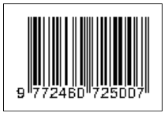Implementation of Genetic Algorithms and Momentum Backpropagation in Classification of Subtype Cells Acute Myeloid Leukimia
Dian Mustikaningrum(1*), Retantyo Wardoyo(2)
(1) Master Program in Computer Science and Electeonics, FMIPA UGM, Yogyakarta
(2) Department of Computer Science and Electronics, FMIPA UGM, Yogyakarta
(*) Corresponding Author
Abstract
Acute Myeloid Leukimia (AML) is a type of cancer which attacks white blood cells from myeloid. AML subtypes M1, M2, and M3 are affected by the same type of cells called myeloblasts, so it needs more detailed analysis to classify.Momentum Backpropagation is used to classified. In its application, optimal selection of architecture, learning rate, and momentum is still done by random trial. This is one of the disadvantage of Momentum Backpropagation. This study uses a genetic algorithm (GA) as an optimization method to get the best architecture, learning rate, and momentum of artificial neural network. Genetic algorithms are one of the optimization techniques that emulate the process of biological evolution.
The dataset used in this study is numerical feature data resulting from the segmentation of white blood cell images taken from previous studies which has been done by Nurcahya Pradana Taufik Prakisya. Based on these data, an evaluation of the Momentum Backpropagation process was conducted the selection parameter in a random trial with the genetic algorithm. Furthermore, the comparison of accuracy values was carried out as an alternative to the ANN learning method that was able to provide more accurate values with the data used in this study.
The results showed that training and testing with genetic algorithm optimization of ANN parameters resulted in an average memorization accuracy of 83.38% and validation accuracy of 94.3%. Whereas in other ways, training and testing with momentum backpropagation random trial resulted in an average memorization accuracy of 76.09% and validation accuracy of 88.22%.
Keywords
Full Text:
PDFReferences
[1] A. Lowenberg, Bob, Downing, James R., Burnett, “Acute Myeloid Leukimia,” N. Engl. J. Med., vol. 341, no. 14, 1999.
[2] P. Kumar, “Automatic Detection of Acute Myeloid Leukemia from Microscopic Blood Smear Image,” Int. Conf. Adv. Comput. Commun. Informatics, pp. 1803–1807, 2017.
[3] N. M. Nawi, A. Khan, and M. Z. Rehman, “A New Back-Propagation Neural Network Optimized with Cuckoo Search Algorithm.”
[4] C. Luo, Yan, Hou, Yuanbin, Liu, Gaiye, Tang and Hangying, “Transformer Fault Diagnosis Method Based on QIA Optimization Backpropagation Neural Network,” Inf. Technol. Networing, Electron. Autom. Control Conf., pp. 1623–1626, 2017.
[5] R. Suhendra, C.D., Wardoyo, “Penentuan Arsitektur Jaringan Syaraf Tiruan Backpropagation (Bobot Awal dan Bias Awal) Menggunakan Algoritma Genetika,” vol. 9, no. 1, pp. 77–78, 2015.
[6] A. Harjoko et al., “Classification of acute myeloid leukemia subtypes M1 , M2 and M3 using active contour without edge segmentation and momentum backpropagation artificial neural network,” MATEC Web Conf., vol. 01041, pp. 1–6, 2018.
[7] N. Kdhimayoob and A. A. Hussein, “Breast Cancer Diagnosis Using Genetic Algorithm for Training Feed Forward Back Propagation,” Int. Conf. New Trends Inf. Commun. Technol. Appl., no. March, pp. 7–9, 2017.
[8] R. B. Aswin, J. A. Jaleel, and S. Salim, “Hybrid Genetic Algorithm - Artificial Neural Network Classifier for Skin Cancer Detection,” Int. Conf. Control. Instrumentation, Commun. Comput. Technol., pp. 1304–1309, 2014.
[9] X. Yang, Nature-Inspired Optimization Algorithms. Elsevier Inc, 2014.
[10] T. Prakisya, “Klasifikasi Subtipe Penyakit Acute Myeloid Leukimia M1, M2 dan M3 dengan Segmentasi Active Contour Without Edge dan Momentum Backpropagation Artifial Neural Network,” Gadjah Mada, 2017.
[11] L. Fausett, Fundamentals of Neural Network: Architectures, Algorithm, and Application. New Yersey: Prentice-Hall, 1994.
Article Metrics
Refbacks
- There are currently no refbacks.
Copyright (c) 2020 IJCCS (Indonesian Journal of Computing and Cybernetics Systems)

This work is licensed under a Creative Commons Attribution-ShareAlike 4.0 International License.
View My Stats1







